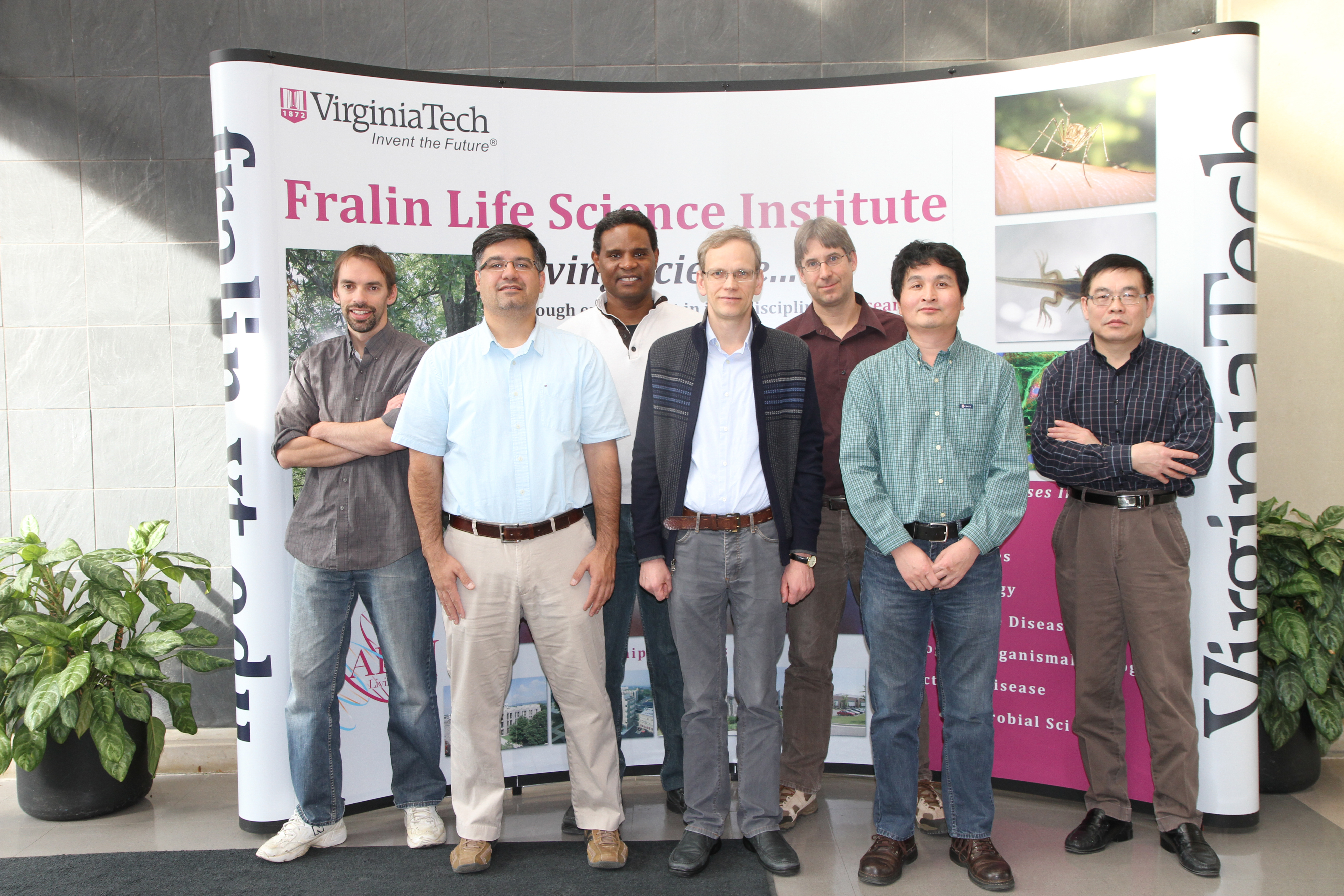Fralin vector-borne disease researchers to host symposium

How do mosquitoes change their ability to transmit malaria parasites? Which enzyme inhibitors are important in the transmission of Chagas disease? How can we control mosquito populations? How can we prevent plasmodium growth in humans?
These topics and more will be addressed at the Virginia Tech Vector-borne Infectious Disease Research Group’s third symposium on March 8-9, 2013 at the Inn at Virginia Tech.
The symposium will feature oral and poster presentations by Virginia Tech faculty members and students working in the areas of parasitology, vector biology, vaccine, and drug discovery.
It will also feature remarks from three guest speakers: Juan Alfonzo, associate professor of microbiology at Ohio State University, presenting "tRNA editing in trypanosomes: Though this be madness, yet there is method"; Michelle Arkin, associate professor of pharmaceutical chemistry at the University of California San Francisco, presenting "High-content screening for parasitology and drug discovery"; and Xiao-Qiang (Sean) Yu, associate professor of cell biology and biophysics at the University of Missouri-Kansas City, presenting "Exploring insect innate immune signaling and pathways."
The symposium is open to the public. A full schedule will be posted on the symposium site soon. Faculty and students interested in attending or presenting are invited to register via the site before March 1.
"This year, similar to previous years, we aim to continue increasing the visibility and collaborations among vector-borne disease researchers, other members of the Virginia Tech community, and distinguished invited speakers," said Pablo Sobrado, associate professor of biochemistry in the College of Agriculture and Life Sciences and coordinator of this year’s event.
Each year, the Vector Borne Infectious Disease Research Group selects a member to serve as coordinator of the symposium. The group votes on which guest speakers to invite.
"Normally we focus on our lab projects but this is an opportunity to know more about the efforts being undertaken by other labs as well," said Atashi Sharma, a Ph.D. student in entomology in the College of Agriculture and Life Sciences who was the winner of the student’s poster competition in vector biology at last year’s symposium. "I was a bit nervous at first, but as I started explaining my work to different guests and students I felt more confident."
"During some serious discussions at the poster session at last year’s symposium, I realized that the molecules I synthesize in lab could have applications in cases of other vector-borne infectious diseases too," said Astha Verma, a Ph.D. student in chemistry in the College of Science and winner of the student’s poster competition in drug discovery at last year’s symposium. "As a synthetic chemist that is what I am always looking for — multiple applications of the compounds I synthesize."




